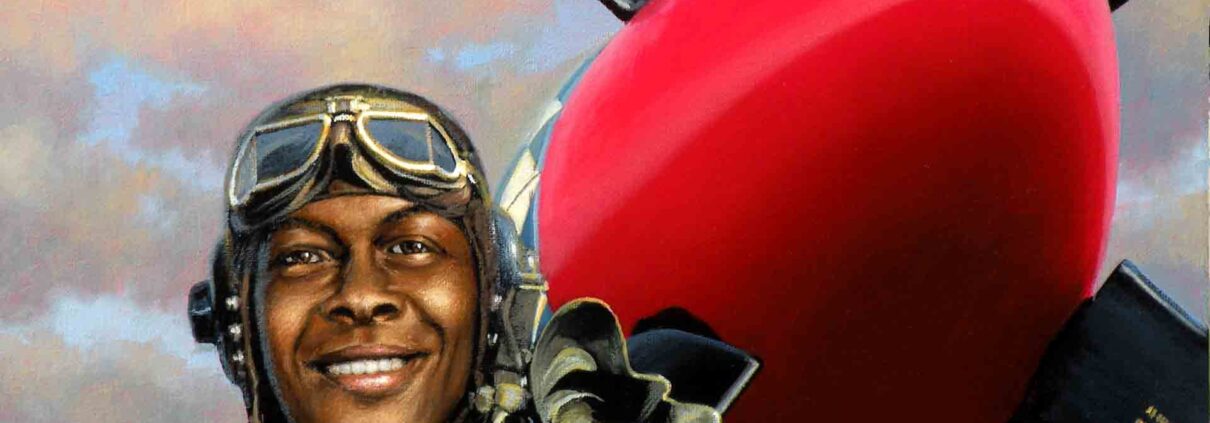Tuskegee Airman William Campbell
Colonel William Campbell
Tuskegee Airman William Campbell, ss a member of Tuskegee Class SE-42-SE, graduated from the program on July 3, 1942. He was now a second lieutenant. Campbell was then assigned to the 99th Pursuit Squadron.
The 99th was deployed to North Africa and were now flying the P-40F Warhawk. They were the first all black fighter squadron to go into war. Campbell flew in the first combat mission of the 99th Pursuit Squadron on June 2, 1943. On one of his early missions, he became the first African-American pilot to drop a bomb on an enemy target.
Having completed a long first combat tour, Campbell was sent back to the US and flew as an instructor pilot. He volunteered to go back into combat and returned to the Europe in 1944 as a Captain. On October 11, 1944, joined the 332d Fighter Group and a few weeks later. October 29, 1944, he assumed command of the 99th Fighter Squadron now a full Major.
Campbell received the Distinguished Flying Cross on New Year’s Day 1945.
Three months later, on March 31, 1945, Campbell participated in a mission of the 332d Fighter Group to destroy railroad and other targets in the area surrounding Munich, Germany. The mission successfully shot down 13 enemy fighters; Campbell was credited for one of the 13 kills.
Over the course of World War II, Campbell actively served in the Sicilian and Italian campaigns and flew 106 missions, becoming the first African-American pilot to drop a bomb on enemy targets.
On April 15, 1945, Campbell was awarded his second Distinguished Flying Cross.
Following World War II, Maj. Campbell assumed the position of Group Commander of the 332nd Fighter Group on August 28, 1947. Campbell went on to fight in two more wars during his military career, as he served in both Korea and Vietnam. He remained in the service until 1970, reaching the rank of full colonel.

 Stan Stokes
Stan Stokes Stan Stokes
Stan Stokes Stan Stokes
Stan Stokes